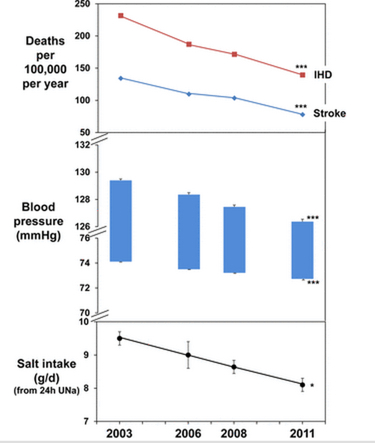|
| Salt-reduction by reformulation in the UK Example1 #371165 The UK initiated a nationwide salt reduction programme in 2003/2004. The programme has been successful and resulted in a 15% reduction in population salt intake by 2011. | Factors that contributed the success of the voluntary salt-reduction programme, included: (1) The programme provided a level playing field. (2) The reformulation process was slow and unobtrusive; so taste receptors could adjust and there was no rejection of the reformulation by the public. (3) The voluntary policy was supported with a clear and transparent monitoring programme and strong enforcement (thanks, in part, to the role played by the Food Standards Agency). (4) Continuous media exposure of the issue. 
Source: Feng J He, Sonia Pombo-Rodrigues, Graham A MacGregor, BMJ |
|
|